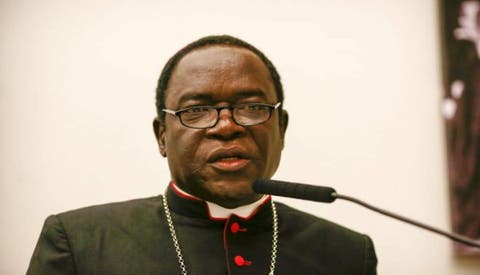The House of Representatives is expected to commence debate on the general principle of a bill that seeks to remove all forms of immunity clauses conferred on the President, Vice President, State Governors and Deputy Governors in the 1999 Constitution (as amended).
The private member bill which passed through First reading on the floor of the House, was sponsored by the immediate past Chairman, House Committee on Army, Hon. Rimamnde Shawulu Kwewum and seeks to amend section 308 of the Principal Act.
He maintained that the amendment being proposed will not pre-dispose President, Vice President as well as Governors and Executives to distraction as these are explicitly prohibited.
The lawmaker who argued that such immunity exists only in countries with weak democratic structures stressing that immunity for Executives has stunted our development and engendered democracy, hence “removing the blanket immunity clause would increase accountability and open up the creativity of Nigerian people.”
While citing the provisions in other jurisdictions, he observed that “there is absolute immunity from civil litigation for official acts undertaken” in the United States of America.
“The Supreme Court in the US held that the President does not possess absolute immunity from civil litigation surrounding acts he took before becoming the president. In 2020, the Supreme Court held that the president is subject to subpoenas in criminal prosecutions for personal conduct,” he noted.
According to him, in the United Kingdom, immunity from criminal prosecution is not enjoyed by members of parliament. Parliamentary immunity (parliamentary privileges) are allowed. No prosecution for what is disclosed in Parliamentary debates and processes.
He further observed that in France, only Parliamentary privileges/immunity are allowed. In Germany, there is only parliamentary privileges/immunity but parliament can vote to lift the immunity for specific members and allow prosecution of the President.
In Chile, there is Parliamentary immunity. No immunity for serving Presidents. Prosecutions can commence immediately after leaving office.
In Cote d’Ivoire, President is liable for acts done in the exercise of his office, can be prosecuted for high treason; in Fiji Island, there is full unconditional immunity for President, Prime Minister, etc.; in Kazakhstan, there is immunity for the President; in Lebanon, immunity while discharging functions of the office; in the neighbouring Niger Republic, immunity in the exercise of the function of office; No immunity for high treason; in Russia, inviolability of immunity for former and President while in Syria, immunity is granted except treason.
According to the proponent of the bill, the proposed amendment seeks to “make the category of persons named and /or referred to in subsection 3 of Section 308 of the Constitution become subject to legal proceedings, whether civil or criminal, during their period of office, that is, whilst holding such office.
Currently, Section 308 of the Constitution of the Federal Republic of Nigeria provides immunity for persons holding the office of President or Vice President, Governor or Deputy Governor under subsections (1)(a), (b) and (c); (2) and (3) thereof. In effect, by this Constitutional provision, the restriction is placed on legal proceedings for persons holding these offices under subsection (1) and (2) Section 308 Constitution of Federal Republic of Nigeria.
“The amendment proposed here, however, seeks to limit or remove such immunity, whether civil or criminal, provided however that the action and decisions contemplated therein do not relate to such issues as corrupted 0 to the crime of murder, treason, or any other personal crimes committed by the office holder as an individual whilst in or out of office.”
While calling for a paradigm shift with the view to outlaw the immunity clause, Hon. Shawulu argued that “Immunity for President and executives presumes that holders of the offices necessarily possess some form of divinity that immunes them from committing crimes and always act according to the law and the Constitution.
“Do not have any interest or loyalties that go against the state and its people and re above the law-meaning that the law does not apply to them. The above tenets do not conform to democracy and the natural law of justice. Besides, deifying human beings these regulations have protected heinous crimes against the people and the state.
“Increasingly, around the world, the rules of accountability and equality before the law are being strengthened,” he observed.
While frowning at the current provision which provides that such public office holders should ‘wait till after tenure’, the Taraba lawmaker
“Some well-meaning people have argued that executives should not be distracted; and that, frivolous cases may be brought up against such executives.
“The scenario of several cases cannot, however, prevent the strengthening of our system and constitutional framework to increase the greatest good for the highest number of people. Secondly, a chief executive-President or Vice President, Governor or Deputy Governor who commits a criminal offence has already distracted himself.
“Furthermore, such a criminal action itself disqualifies him from holding such a position and the very fact that he is suspected by law enforcement agencies and people of having committed such a criminal offence diminishes him and the offence he is occupying in the eyes of reasonable people.
“In addition, justice delayed is justice denied: assuming a President or Governor commits rape or murder, what if, lack of immediate prosecution leads to his tampering with witnesses or evidence?”
The bill which is expected to be gazetted for Second Reading is to be referred to the Special Ad-hoc Committee on Constitution Review for further legislative action.







